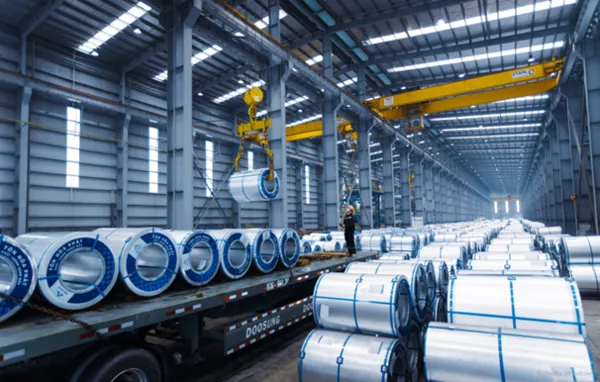 Economy
Economy

.jpg) |
| The handover ceremony of greenhouse gas inventory vertification for Hòa Phát Group.— Photo courtesy of the firm |
QUẢNG NGÃI — Vietnamese steel giant Hòa Phát Group has announced that BSI - the UK's leading international certification organisation - certified ISO 14064-1:2018 standard and ISO 14067:2018 on greenhouse gas inventory for steel products of its subsidiary - Hòa Phát Dung Quất Steel JSC.
The event marks a significant milestone in the company's journey towards sustainable development and greenhouse gas emission reduction.
Vice Director of the Hòa Phát Dung Quất Steel JSC Hồ Đức Thọ said collecting data, compiling reports, and quantifying greenhouse gas emissions are crucial tasks for the firm. The company will continue developing a plan to manage and report periodic greenhouse gas inventory, and maximising the digitisation of data collection tools to facilitate traceability and provide quick, accurate information.
The certification is also an initial success for the firm in proactively updating and implementing solutions to meet and enhance capabilities according to new requirements, thus paving the way for expanding exports of other high-quality product lines to markets worldwide in the future, Thọ said.
Lê Duyên Anh, General Director of BSI Vietnam, said the certification demonstrates a clear milestone in the firm's commitment to controlling and reducing greenhouse gas emissions, expressing his hope that the company will make strides on its sustainable development journey.
As the largest steel manufacturer in Southeast Asia, the Hòa Phát Group utilises advanced closed-loop cycle production technologies from G7 countries in its steel production activities in steel complexes.
Hoa Phat has meticulously planned and allocated up to 30 per cent of its investment capital for environmental measures. Its steel complexes employ a series of solutions and the latest technologies to optimize production and save energy.
In 2023, the total electricity generation of the Hòa Phát Dung Quất Steel JSC’s thermal power plant reached 1.96 billion kWh, enabling the company to meet 90 per cent of its electricity demand for production. This electricity generation has contributed to environmental protection by reducing CO2 emissions compared to coal-fired power generation methods with equivalent capacity. — VNS

.jpg)


